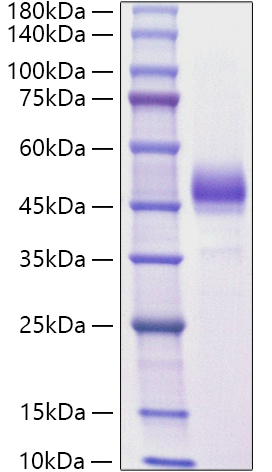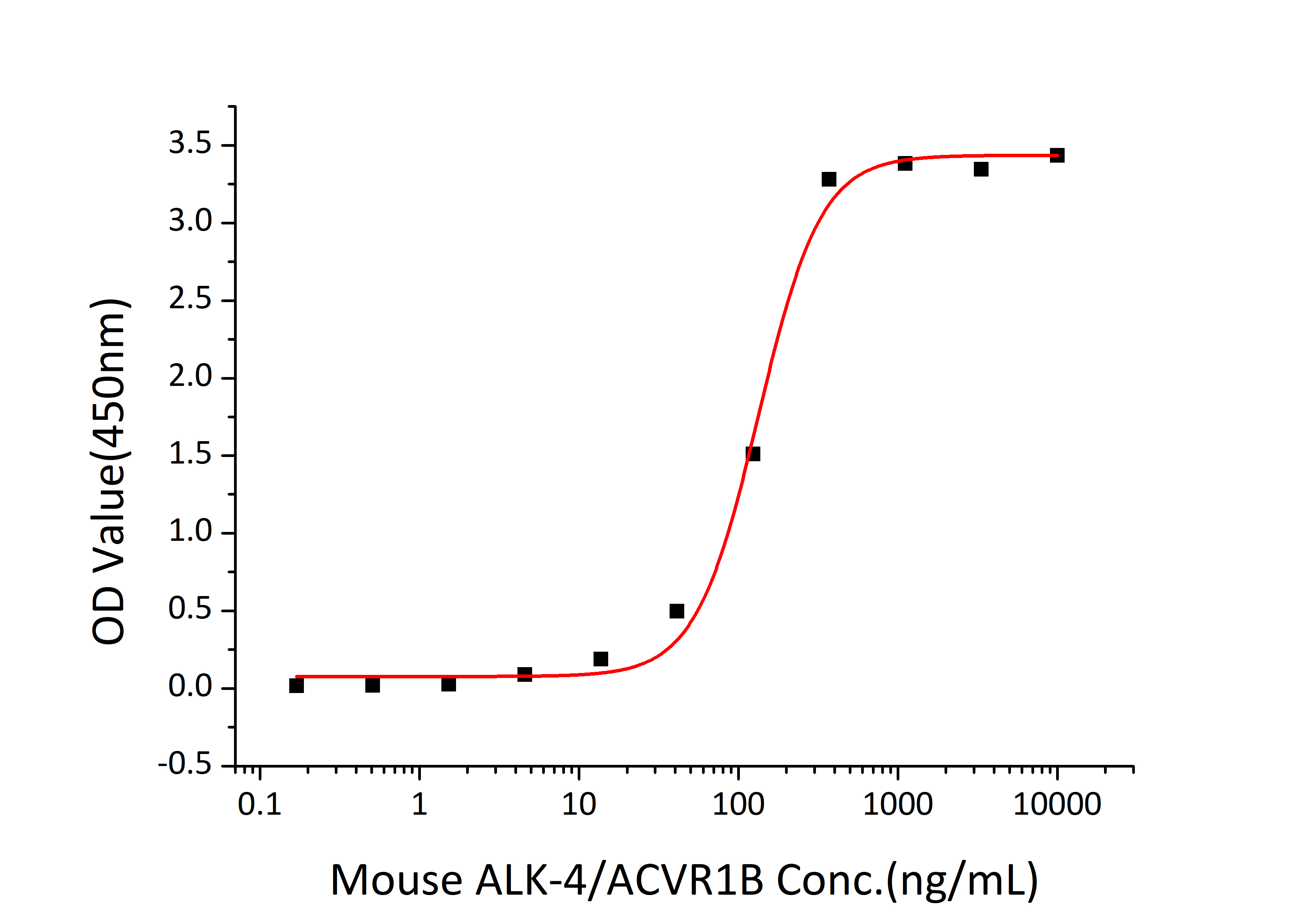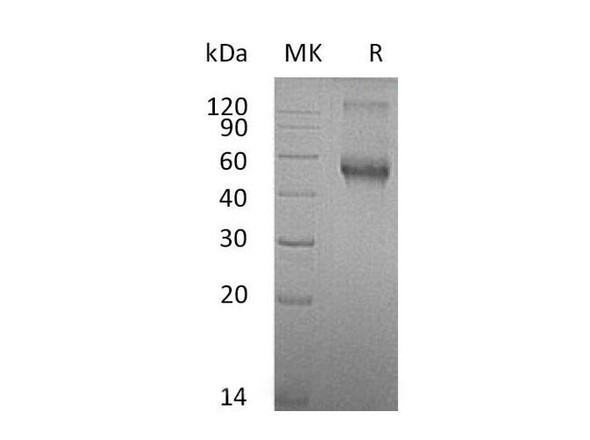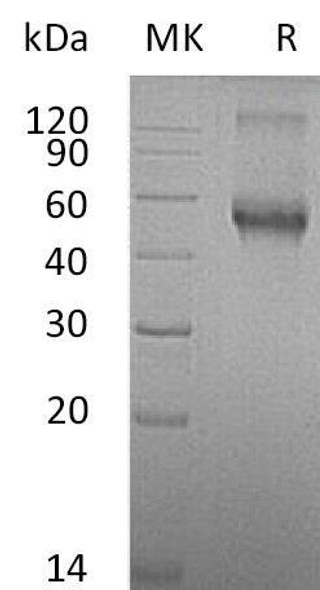Description
Recombinant Mouse ALK-4/ACVR1B Protein
The Recombinant Mouse ALK-4/ACVR1B Protein is a high-quality recombinant protein designed for murine biological research applications. This protein serves as an essential reagent in mouse model studies, comparative immunology research, and preclinical therapeutic evaluations, enabling scientists to investigate ALK-4/ACVR1B biology and its relevance to human disease mechanisms through translational research approaches.
This product (SKU: RPCB1100) is produced using HEK293 cells and features a C-hFc tag for convenient detection and purification. The protein exhibits a calculated molecular weight of 37.30 kDa with an observed molecular weight of 45-55 kDa under denaturing conditions, achieving ≥ 90 % as determined by SDS-PAGE.. Functional bioactivity has been validated through rigorous quality control assays, confirming its suitability for demanding research applications.
Key Features
| High Purity by Affinity Chromatography | |
| Mammalian & Bacterial Expression Systems | |
| High lot-to-lot consistency via strict QC |
| Product Name: | Recombinant Mouse ALK-4/ACVR1B Protein |
| SKU: | RPCB1100 |
| Size: | 10 μg , 20 μg , 50 μg , 100 μg |
| Reactivity: | Mouse |
| Synonyms: | Alk4, SKR2, ALK-4, ActRIB, ActR-IB, Acvrlk4, 6820432J04 |
| Tag: | C-hFc |
| Expression Host: | HEK293 cells |
| Calculated MW: | 37.30 kDa |
| Observed MW: | 45-55 kDa |
| Gene ID: | 11479 |
| Protein Description: | High quality, high purity and low endotoxin recombinant Recombinant Mouse ALK-4/ACVR1B Protein (RPCB1100), tested reactivity in HEK293 cells and has been validated in SDS-PAGE.100% guaranteed. |
| Endotoxin: | < 0.01 EU/μg of the protein by LAL method |
| Purity: | ≥ 90 % as determined by SDS-PAGE. |
| Formulation: | Lyophilized from a 0.22 μm filtered solution of PBS, pH 7.4. |
| Bio-Activity: | Measured by its binding ability in a functional ELISA. Immobilized Mouse TDGF1 (RPCB0020) at 5 μg/mL (100 μL/well) can bind Mouse ALK4(RPCB1100) with a linear range of 4.5-133.2 ng/mL. |
| Reconstitution: | Centrifuge the vial before opening. Reconstitute to a concentration of 0.1-0.5 mg/mL in sterile distilled water. Avoid vortex or vigorously pipetting the protein. For long term storage, it is recommended to add a carrier protein or stablizer (e.g. 0.1% BSA, 5% HSA, 10% FBS or 5% Trehalose), and aliquot the reconstituted protein solution to minimize free-thaw cycles. |
| Storage: | Store at -20℃.Store the lyophilized protein at -20℃ to -80 ℃ up to 1 year from the date of receipt. After reconstitution, the protein solution is stable at -20℃ for 3 months, at 2-8℃ for up to 1 week. |
ACVR1B (Activin A Receptor, type 1B), belongs to the protein kinase superfamily, TKL Ser/Thr protein kinase family, and TGFB receptor subfamily. ALK-4/ACVR1B acts as a transducer of activin or activin like ligands signals. Activin binds to either ACVR2A or ACVR2B and then forms a complex with ACVR1B. The known type II activin receptors include ActRII and ActRIIB, while the main type I activin receptor in mammalian cells is ALK-4 (ActRIB). In the presence of activin, type II and type I receptors form complexes whereby the type II receptors activate ALK-4 through phosphorylation. The activated ALK-4, in turn, transduces signals downstream by phosphorylation of its effectors, such as Smads, to regulate gene expression and affect cellular phenotype. ALK-4/ACVR1B is an important regulator of vertebrate development, with roles in mesoderm induction, primitive streak formation, gastrulation, dorsoanterior patterning, and left-right axis determination.








